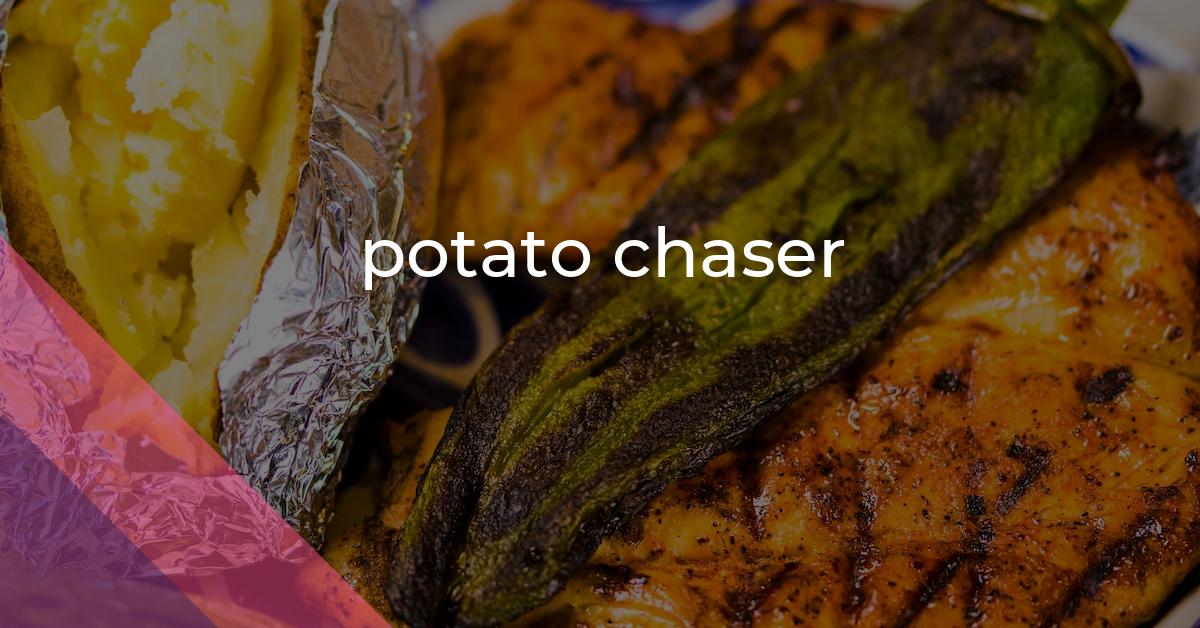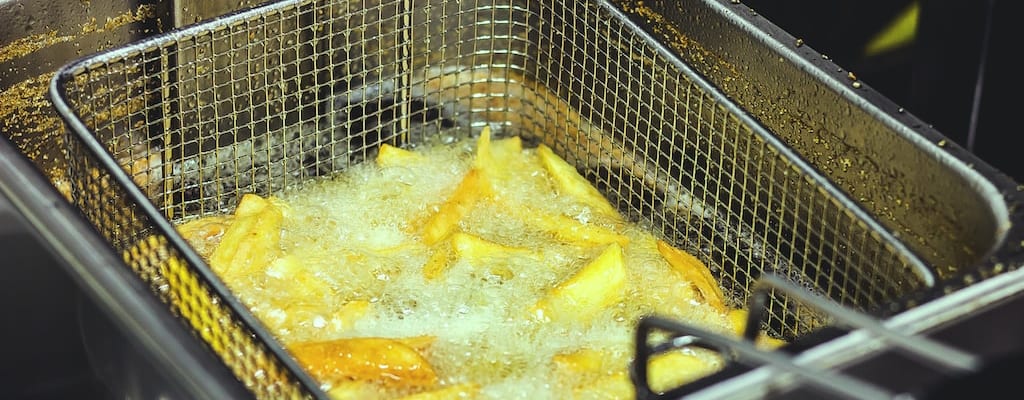potato chaser: Idiom Meaning and Origin
What does ‘potato chaser’ mean?
A "potato chaser" refers to someone who eats plain or unadorned food after a more exciting or flavorful dish. It implies a lack of enthusiasm or satisfaction with the simple experience, often used figuratively to describe someone who settles for less.

Idiom Explorer
The idiom "scratch the surface" means to only uncover or reveal a small part or a superficial level of something, without fully understanding or exploring its depth or complexity.
An idiom that refers to a strong preference or craving for salty foods. It implies a person's inclination towards salty snacks due to their taste or desire for them.
The idiom "salad" refers to a mixture or combination of various things or elements that do not seem to go well together. It implies a lack of harmony or coherence in a particular situation or context.
An idiom often used to describe a person who is disliked or considered bad, with negative qualities or behavior.
The idiom "rice chaser" refers to someone who seeks to profit or take advantage of a situation or person solely for financial gain. This person may prioritize money over any other considerations or relationships. The idiom likely originated from the idea of chasing after rice, which is a staple food associated with sustenance and survival.
The idiom "quiche-eater" refers to a person who is seen as overly refined, sophisticated, or effeminate, often mocking their taste for delicate or gourmet foods. It is a derogatory term often used to criticize someone's masculinity or lack thereof.
The idiom "popcorn movie" refers to a light-hearted, entertaining film that is not meant to be taken seriously. It implies a movie that is enjoyable to watch but lacks depth or substance.
A pixel peeper is someone who excessively focuses on small details or flaws, especially when it comes to photographs or digital images.
The idiom "pick at" means to criticize or find fault with something, often in a persistent or nitpicky manner. It can also refer to eating or consuming food in a hesitant or finicky way.
A "pearl-clutcher" refers to someone who is easily shocked or scandalized by something. They are often seen as traditional or conservative in their views.
Potato Chaser: Unveiling the Significance
Potato chaser is an idiom rooted in American English that has gained prominence in recent decades. It is commonly used to describe someone who follows a person or a group, often considered less significant or influential, in order to gain personal advantages or opportunities.
One interesting fact about the idiom potato chaser is its connection to the concept of ordering food and drinks. The term "chaser" is often associated with alcoholic beverages, specifically referring to a drink consumed after another drink to cleanse the palate or offset the taste. In this context, a potato chaser might refer to someone who accompanies another person for their own gain, much like a chaser complements and follows a primary beverage.
Another intriguing aspect of the idiom is the use of the word "potato." Potatoes are a staple and commonly consumed food in the United States and may symbolize something mundane or ordinary. When combined with the concept of being a chaser, the idiom potato chaser could imply someone who follows others in an unremarkable or subservient manner.
It is important to note that the idiom potato chaser is primarily used in informal and colloquial settings, such as casual conversations or informal writing, rather than in formal or professional contexts. Its prevalence and usage can vary across different regions and social groups within the United States, but it is generally understood within the country.
Due to its informal nature, the idiom potato chaser may not be widely recognized or understood by non-native English speakers or individuals unfamiliar with American idiomatic expressions. Therefore, it is crucial to consider the audience when using or explaining this idiom in communication.
While the meaning of potato chaser seems relatively straightforward, the underlying motivations and nuances of being a potato chaser can be more complex. There may be varying degrees of intentionality and self-awareness in those who exhibit potato chaser behavior, as well as different perceptions of the significance and value attached to individuals or groups being followed.
The idiom's metaphorical nature and cultural underpinnings allow for broader interpretations and associations. It invites speculation on the motivations behind being a potato chaser and the potential consequences of such behavior. These speculations, however, remain open-ended and subject to individual analysis.
Now, let's explore how potato chaser is related to other idiomatic expressions. One such idiom is "rice chaser," which refers to someone who follows another person closely, imitating their actions or trying to gain personal benefits. This idiom shares a similar concept with potato chaser, emphasizing the act of following for personal gain.
Another related idiom is "salty tooth," which is used to describe someone who has a preference for salty foods. While not directly related to being a chaser, the idiom's emphasis on a specific taste preference can be metaphorically linked to the mundane or ordinary nature often associated with potatoes in the idiom potato chaser.
Next, we have the idiom "quiche-eater," which is used to describe someone who is pretentious or posh. While this idiom may not have an immediate connection to potato chaser, it highlights the different perceptions and value judgments placed on individuals or groups, similar to the nuances explored in the concept of being a potato chaser.
Moving on, we have the idiom "chow down," which means to eat a large amount of food quickly and eagerly. While this idiom doesn't directly align with the concept of being a chaser, it does emphasize the idea of following a specific action, in this case, eating, with enthusiasm. This can be loosely associated with the act of following someone closely, as implied in the idiom potato chaser.
Finally, we have the idiom "no sense no feeling," used to describe someone who is insensitive or unfeeling. Although not directly related, this idiom presents a contrast to the nature of being a potato chaser, as it emphasizes a lack of emotion or sensitivity, whereas being a chaser often involves being aware of personal gain or advantages.
The idiom potato chaser is an intriguing expression that reflects the ever-evolving nature of language and its ability to capture human behavior and social dynamics. Through its connection to food and drink, as well as its metaphorical associations, the idiom offers insights into the motivations and complexities of being a follower. By exploring its relationship with other idiomatic expressions, such as "rice chaser," "salty tooth," "quiche-eater," "chow down," and "no sense no feeling," we gain a deeper understanding of the nuances and cultural context surrounding the idiom potato chaser.
Example usage
Examples of how the idiom potato chaser can be used:
After finishing a hearty meal, he ordered a potato chaser to accompany his drink, as he enjoyed the combination of flavors.
When the waiter asked if she wanted a side of fries with her burger, she jokingly replied, "Why not? A potato chaser sounds perfect!"
At the bar, a customer asked the bartender for a beer with a potato chaser, hoping to enhance his drinking experience.
More "Beverages" idioms



